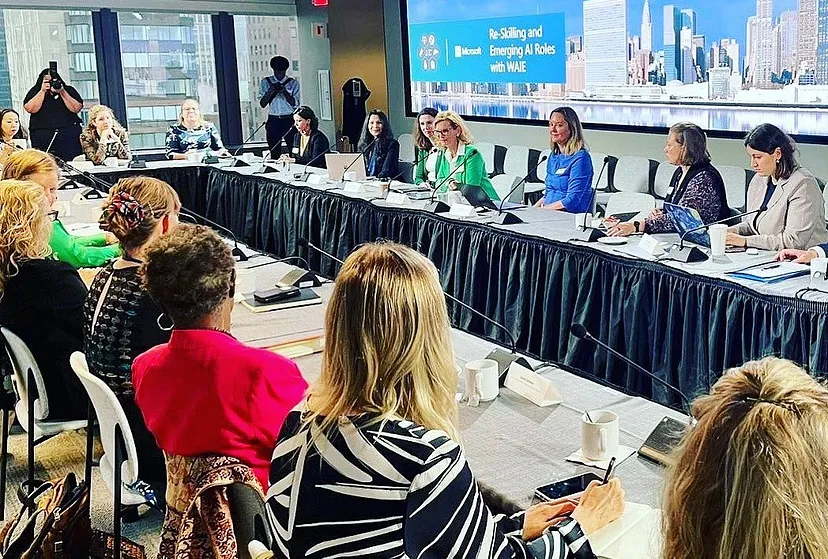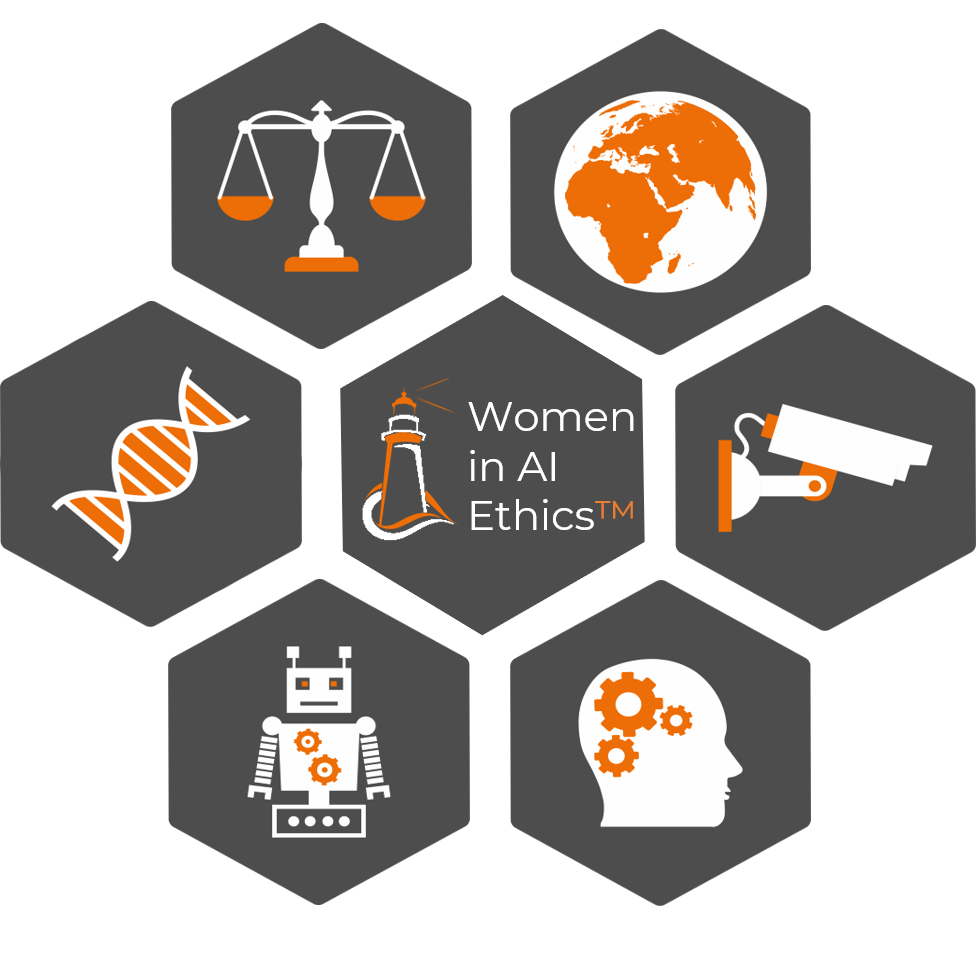 Pre-UNGA breakfast convening
Pre-UNGA breakfast convening
At our pre-UNGA breakfast convening on the critical topic of reskilling and emerging roles in AI, Women in AI Ethics™ (WAIE) and Microsoft brought together an inspiring group of diverse leaders including our guest of honor, Doreen Bogdan-Martin, whose historic appointment as International Telecommunication Union’s first woman Secretary-General in 157yrs of United Nations history, is an inspiration to millions of women and young girls around the world.
This inaugural gathering was the first step in sparking our collective imagination and shaping the agenda for future discussions on ensuring women’s full participation in the AI economy. Here are the key themes that emerged throughout this discussion.
Women still represent a disproportionate and growing share of the digitally unconnected. While AI presents many benefits, it also adds new risks to those already faced by women. The acceleration in adoption of AI will expose some jobs to automation and while some others will be transformed. Women are more vulnerable to displacement than men in several sectors and many will need assistance in reskilling. There is an urgent need to ensure that the digital divide doesn’t turn into an AI divide.
Thanks to the work of Dr. Timnit Gebru, Dr. Joy Buolamwini, and other experts there is plenty of evidence that supports a direct link between diversity and the development of responsible AI technology. The most common excuse to justify lack of diversity in technology, “We don’t know any qualified women” doesn’t hold up under closer scrutiny. (The WAIE open online directory has over 1,000 entries and is growing every day https://womeninaiethics.org/directory/))
Across the board, there is overwhelming concern about the lack of progress on inclusion of women in STEM, exacerbated by overemphasis on traditional engineering and computer science degrees. Tech companies are competing and hiring from the same shallow pool of talent concentrated in a handful of elite educational institutions and tech companies. The attendees stressed the urgent need to diversify the AI talent pool to include humanities and other non-tech disciplines.
There is general agreement that traditional modes of technical education and reskilling are outdated and pose high barriers for historically underrepresented groups in the tech industry. Many emerging alternative solutions are designed to be more accessible to women with limited time and resources. In addition, the attendees proposed new onramps for women such as mentoring programs, greater investments in support networks, and safety tools for women especially, those from non-western nations to fully participate in the AI economy.
One of the most insightful takeaways from this diverse group is that there are many different levels of technical literacy and many dimensions to technical expertise. Trying to force-fit AI talent into a narrowly defined “technical expert” box is not only exclusionary but the resultant groupthink introduces higher risk into AI systems.
This was the first of many convenings that we have planned on critical issues of AI reskilling, literacy, and ensuring greater inclusion of underrepresented groups in AI. Join us in person in New York or virtually on December 1st at the Women in AI Ethics™ annual summit as we want to include as many diverse perspectives as possible in this important dialogue.


